Key to the City

Brief Synopsis
Cast & Crew
George Sidney
Clark Gable
Loretta Young
Frank Morgan
Marilyn Maxwell
Raymond Burr
Film Details
Technical Specs

Synopsis
While attending a convention of the nation's mayors in San Francisco, Mayor Clarissa Standish of Wenonah, Maine, a demure, Harvard-educated, devoted public servant, meets the rough-hewn, outspoken mayor of Puget City, Steve Fisk. A former longshoreman with a lust for life and beautiful women, Steve initially mistakes Clarissa for Sheila, his balloon dancer date for the evening, and inadvertently insults Clarissa. Clarissa forgives Steve's mistake, however, and eventually comes to admire his brazenness. Though concerned that his image might be tarnished if he were seen dating "important" women, Steve soon develops a close friendship with Clarissa. At the same time, Steve's friend, Puget City fire chief Duggan, warns Steve that Henshaw, a crooked Puget City council member, is waging a campaign to discredit him and that he should avoid any bad publicity while in San Francisco. One night, Steve holds an informal committee meeting with other mayors and their wives at the Blue Duck nightclub in Chinatown, but Clarissa objects to the partying and inadvertently insults the wives of the mayors. The festivities come to an abrupt end when Steve sets off a brawl. Clarissa tries to stop the fight by playing the piano and singing the song "San Francisco," but Steve cuts her song short and insists that she flee the club to save her reputation. The escape plan fails, however, and Steve and Clarissa are arrested in a police raid. Police sergeant Hogan, who is determined to keep the matter quiet, releases Clarissa and Steve, but, as Clarissa leaves the station, a photographer takes her picture in front of a "Sobriety Test" room. Though the picture results in a scandal in the conservative town of Wenonah, Clarissa's uncle, Judge Silas Standish, is pleased to see that his niece has finally shed her prudishness. A short time later, Clarissa and Steve are arrested again while standing on a street corner dressed as children for a costume party. Steve is charged with soliciting a minor, but Hogan quickly releases them again. While Steve and Clarissa ride back to the hotel in a taxi, the taxi swerves to avoid hitting some pedestrians, and the two are thrown into each other's arms. A romantic walk down the fog-shrouded streets of Telegraph Hill then sparks a romance between Clarissa and Steve, and they make plans to marry in Puget City. The engagement is called off, however, after Steve accuses Clarissa of being ashamed of his working class background. When Steve learns that Henshaw plans to hold a secret vote to override his veto of a pork barrel construction contract, Steve decides to leave the convention and return to Puget City. Clarissa is heartbroken when she sees Sheila enter Steve's room, as she is unaware that Steve is not interested in Sheila. Steve arrives in Puget City in time to ensure that his veto is not overridden, and then plans to fly to Wenonah to make amends with Clarissa. Confusion abounds when Silas, who has not been told of the cancellation of the wedding, arrives in Puget City to meet his future nephew-in-law. When Steve learns that Clarissa is on her way to Puget City to find her uncle, he quickly arranges a grand welcoming for her at the train station and plans to present her with the key to Puget City. Clarissa is still angry with Steve when she arrives, and will not permit him to explain why Sheila was in his room. Steve eventually gets his chance to set matters straight, however, and the two resume their marriage plans.

Director
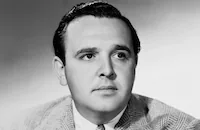
George Sidney
Cast

Clark Gable

Loretta Young
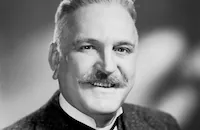
Frank Morgan
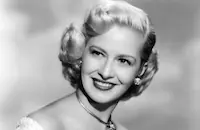
Marilyn Maxwell
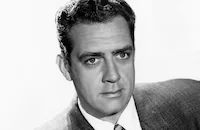
Raymond Burr

James Gleason
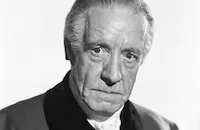
Lewis Stone

Raymond Walburn

Pamela Britton
Zamah Cunningham

Clinton Sundberg

Marion Martin
Bert Freed
Emory Parnell
Clara Blandick
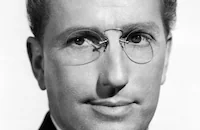
Richard Gaines
John Albright
Charles B. Smith
William Page Frambes

Roger Moore
Dorothy Ford

Bridget Carr
Phyllis Kennedy
Donald Kerr
Jimmy Fox
Sam Hayes
Paul Krueger
Ethan Laidlaw

Pierre Watkin

Nana Bryant
William Forrest
Ruth Clifford
Victor Sen Yung
Maria Sen Yung
Ed Gargan
Tom Dillon
Ronald Hom
William Tannen
Eula Morgan
Fletcher Chandler
Emerson Treacy
William Phipps
Ralph Montgomery
Charles Conrad

Marvin Kaplan
Charles Wagenheim
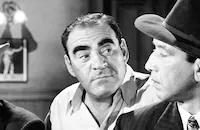
Ralph Dunn

James Flavin
Shirley Lew
Alphonse Martel

Peter Brocco
Wheaton Chambers
Harry Harvey Sr.
Bill Cartledge
Charles Evans
Henry Sylvester
Jack Daley
Bert Moorhouse
Dick Wessel

George Sidney
William "bill" Phillips
Everett Glass
Edward Clark
Gene Coogan

Byron Foulger
Walter Findon
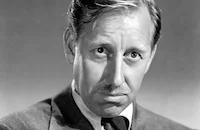
Frank Ferguson
Alex Gerry
Edward Earle
Jack Elam
James Harrison
Frank Wilcox
Edna Holland
Wilson Wood
Mary Jo Ellis
Tommy Walker
Michael Kostrick
Buddy Roosevelt
Helen Brown
Crew
Jack Aldworth
Albert Beich
Robert Riley Crutcher
Jack Dawn
Cedric Gibbons
A. Arnold Gillespie
Z. Wayne Griffin
Edwin J. Hubbell
Irene
Lloyd Isbell
Walter Jurman
Conrad P. Kahn
Gus Kahn
Bronislau Kaper
Bronislau Kaper
Robert Martin
James E. Newcom
Hans Peters
George Rhein
Harold Rosson
Douglas Shearer
Alfred E. Spencer
Edwin B. Willis
Edward Woehler

Videos
Movie Clip



Trailer
Film Details
Technical Specs

Articles
Key to the City
Key to the City was Gable and Young's second and last film together. When they made their first, The Call of the Wild (1935), Young had been a 22-year-old contract player at Fox, on loan to MGM. And Gable, fresh from the success of It Happened One Night (1934), was fast becoming one of MGM's top stars. The Call of the Wild takes place in Alaska, and the company went on location to the state of Washington. There, snowed in for weeks, it's generally believed that Young and the married Gable embarked on an intense affair. When the film (and the affair) ended, Young pleaded a mysterious illness and disappeared for months. Two years later, the unmarried Young adopted a two-year-old girl she named Judy. Rumors had abounded for years that the child was, in fact, Young's own daughter, and the father was Gable. Neither Gable nor Young ever spoke publicly about the alleged affair. But Judy Lewis, Young's daughter, later recalled that when her mother was making Key to the City, she invited the adolescent Judy to visit her on the set to meet Gable. Judy refused, preferring to go to summer camp. A few years later, when Judy was 15, she finally met Gable. He came to Young's home, was introduced to Judy, and wanted to know everything about her life, which Judy thought was odd. Lewis says that her mother finally told her that Gable was her father when Judy was in her early 30s.
Whatever their past history, Gable and Young were cordial during the filming of Key to the City, and had nothing but complimentary things to say about each other. The producer, Z. Wayne Griffin, was a friend of Gable's, and Young's husband at the time, Tom Lewis, so it was a friendly, relaxed set. But by 1950, Gable's career had lost some of its luster, he was pushing 50, and talking about retiring. Yet he still clung to the perks of stardom, such as his five o'clock quitting time, which was promised in his latest contract.
The production proceeded smoothly, until Young collapsed on the set. She was rushed to the hospital, and it was discovered that she was three months pregnant. Production halted while she remained hospitalized for two weeks, as doctors tried to save her pregnancy. She eventually suffered a miscarriage, and took more time off to recuperate. When production finally wrapped, Young and her husband threw a "thank God it's over" party, attended by some members of the cast and crew. Halfway through the party, they learned that co-star Frank Morgan had died. Gable, who had made five films with Morgan, was a pallbearer at his funeral.
Reviews for Key to the City ranged from tepid (Variety: "on the whole amusing, but occasionally labored") to mildly enthusiastic (London Film Weekly: "Clark Gable does his he-man stuff pretty well and Loretta Young makes the most of the part of the mayoress."). Box-office, however, proved disappointing, as it did with many films at that time. The problem was the growing popularity of the new medium, television, which was keeping audiences away from movie theaters. In just a few years, Loretta Young would adopt an "if you can't beat them, join them" attitude, becoming one of the first film stars to make the move to TV. She would become one of the young medium's first and biggest stars.
Director: George Sidney
Producer: Z. Wayne Griffin
Screenplay: Robert Riley Crutcher, based on the story by Albert Beich
Cinematography: Harold Rosson
Editor: James E. Newcom
Art Direction: Cedric Gibbons, Hans Peters
Costumes: Irene
Music: Bronislau Kaper
Principal Cast: Clark Gable (Steve Fisk), Loretta Young (Clarissa Standish), Frank Morgan (Fire Chief Duggan), Marilyn Maxwell (Sheila), Raymond Burr (Les Taggart), James Gleason (Sgt. Hogan), Lewis Stone (Judge Silas Standish).
BW-101m. Closed captioning.
by Margarita Landazuri

Key to the City
Quotes
Trivia
Production was briefly suspended when Loretta Young had a miscarriage.
Notes
According to a January 1949 Hollywood Reporter news item, M-G-M paid $200,000 for a package that included the services of freelance producer Z. Wayne Griffin, the rights to Albert Beich's original story and a completed screenplay by Robert Riley Crutcher. A March 1949 Hollywood Reporter news item indicates that Mervyn LeRoy was originally set to direct the picture. The film marked the final screen appearance of actor Frank Morgan, who died on September 18, 1949, shortly after completing his work on this film. Location shooting took place at Terminal Island, CA and background footage was filmed in San Francisco.
Director George Sidney had a brief appearance in the film, playing a taxi driver. This was the second and last film that co-starred Clark Gable and Loretta Young. Their first film was the 1935 Twentieth Century picture Call of the Wilde (see AFI Catalog of Feature Films, 1931-40; F3.0568).















